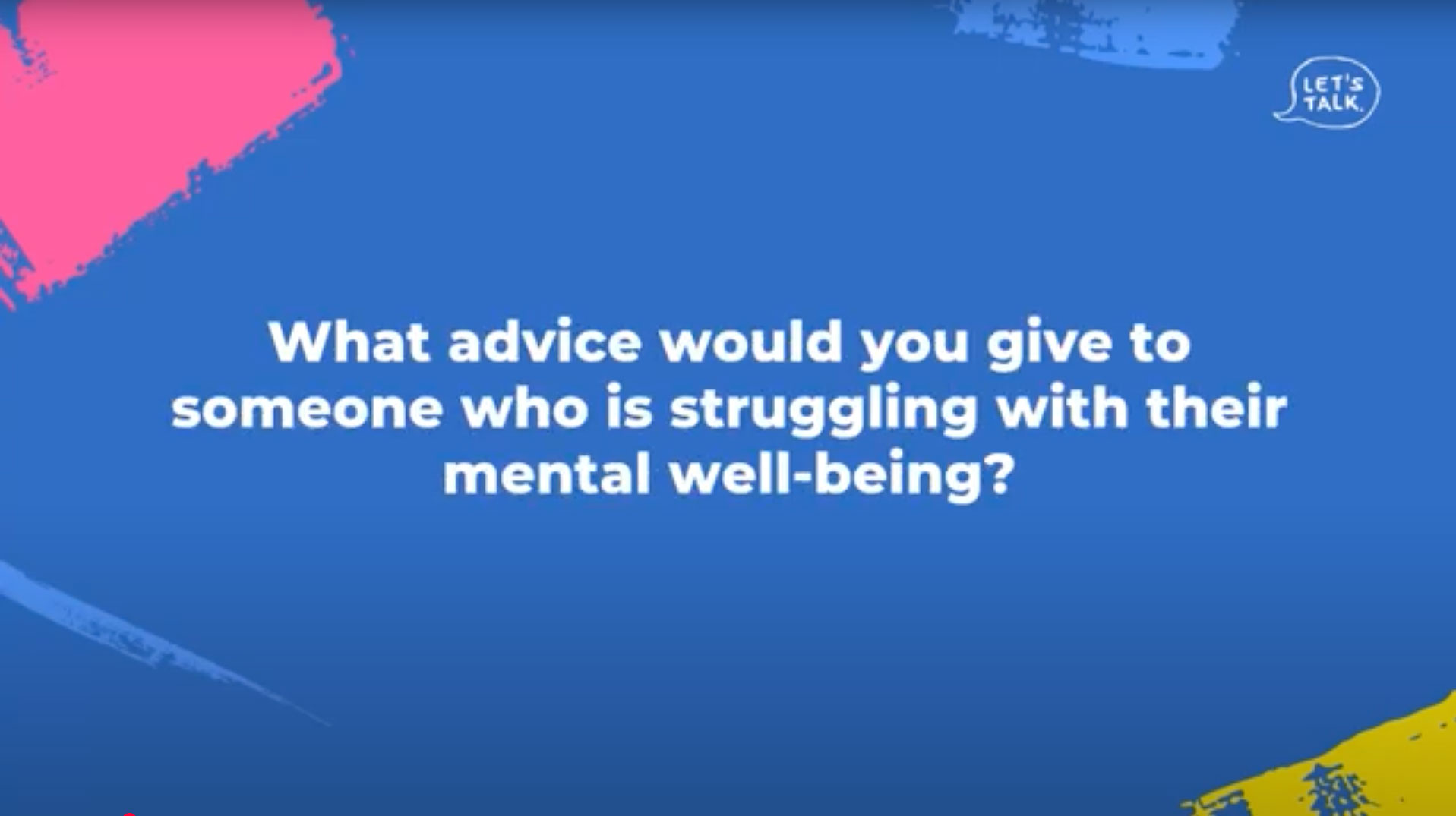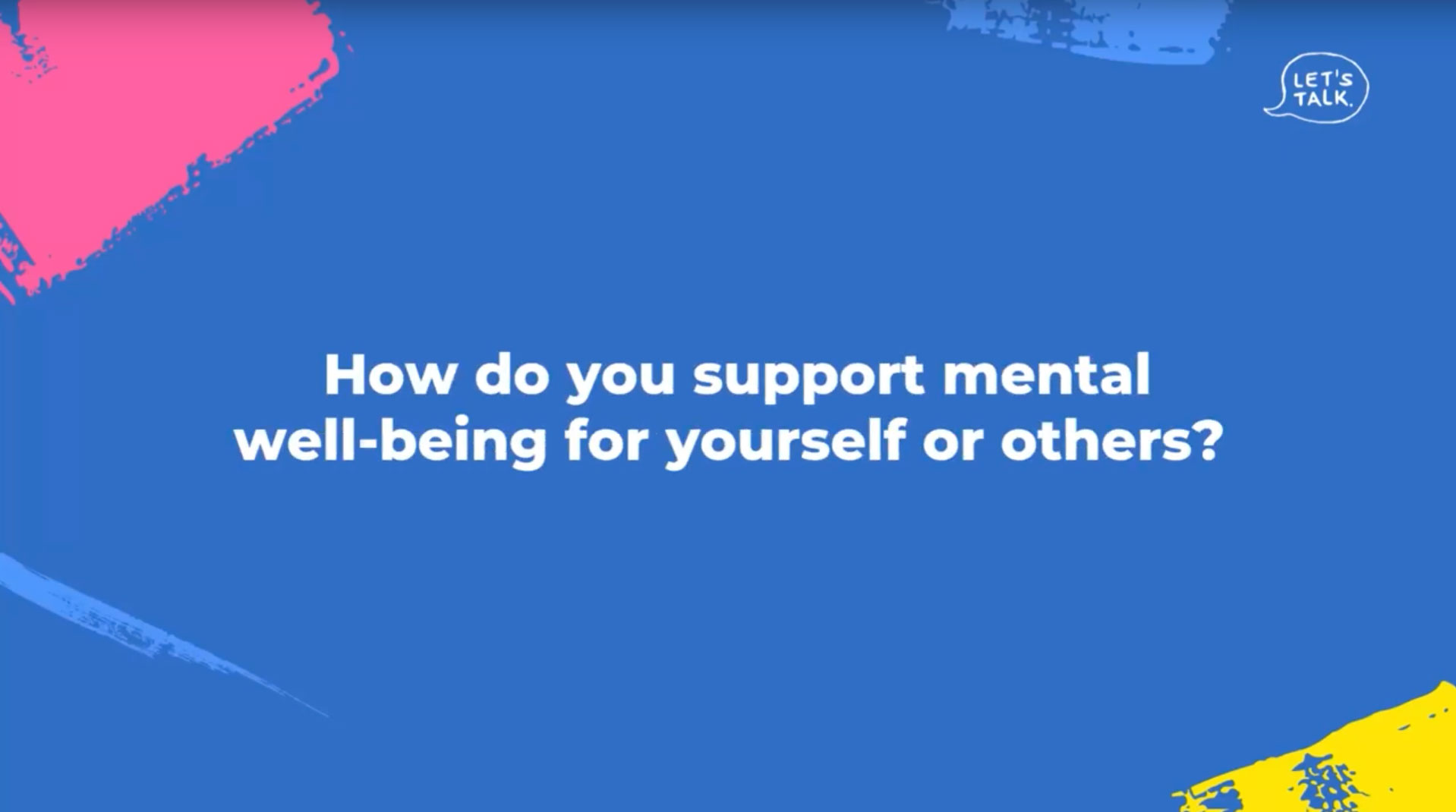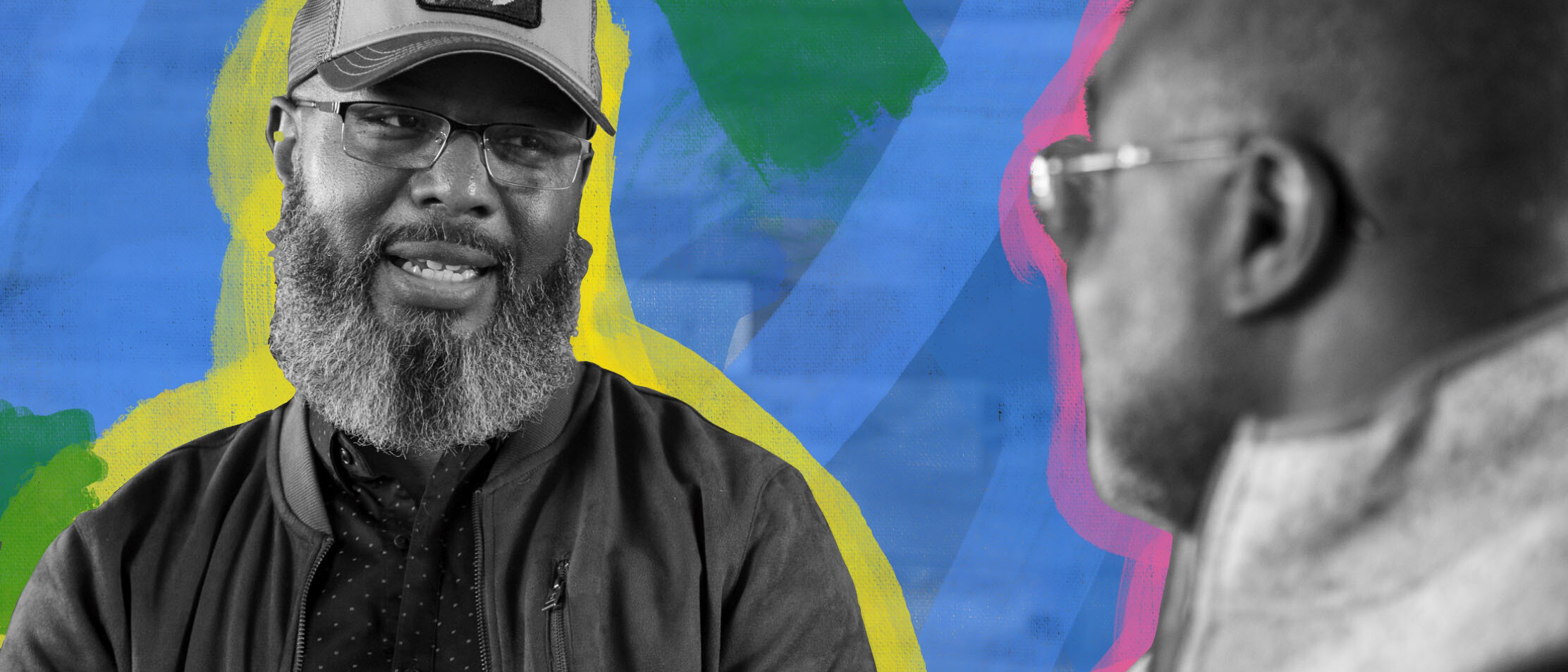There are many forms of support for mental well-being.
From local community groups to national helplines, there are resources for everyone.
Here are some places to start:
How to share what is on your mind — one step at a time
Talking about your mental well-being can feel awkward or uncomfortable — but, starting small can make a big difference. Here are a few tips to help you find the right words:
You wouldn’t try to catch up with a friend in the middle of a movie at the theater. It is not the right time or place to do that. Having a conversation about what you are going through is similar: You want to suggest a good time and place. Choose a quiet moment when you both have time to talk and are free from distractions. Example of something you might say: “Can we sit outside for a bit? I would like to talk about something important.”
Sometimes, the person you want to talk to may not be ready to listen. If they seem busy or distracted, it might not be the best time to talk. However, if you really want to talk to them, ask when a better time would be.
You do not need a detailed plan, but it might help to think about the key things you want to share. It is okay if the conversation goes somewhere unexpected. It is also okay to start without knowing exactly what you want to say — especially when talking to someone close who you trust. Let the conversation flow naturally but having a few ideas in mind may help you start a conversation about your mental wellness.
Experiencing challenges can feel deeply personal and make you feel vulnerable. That’s why it’s important to talk with someone you trust. This could be a friend, family member, coworker, or community member, like a coach or faith leader. Sometimes, talking to someone who is a little more distant from you can feel easier.
We don’t just dive into water without knowing if it is deep enough. Talking about mental health is the same. Test the water before you dive in. Start by sharing what you are comfortable with. Example: “I have been feeling overwhelmed lately. Have you ever felt something like that?”
Not all conversations go as planned. If you do not like how it is going (maybe they’re giving bad advice or getting defensive), it’s okay to say you don’t want to talk anymore right now, and step away.
Try again later (if you want to) or reach out to someone else for support. It might take a try or two before you find the right person who makes you feel comfortable and supported. That is totally normal.
Take a minute to check in with yourself: How is your day really going? Try to name three feelings you’ve had today. Saying them aloud or writing them down can help you understand your thoughts and make them easier to share.
Find the Words to Start a Conversation
There is no one right way to start a conversation, but here are some things you can say to start:
"I’ve been feeling really stressed and I’m not sure how to handle it. Can I get your advice?"
"I’ve been feeling really stressed and I’m not sure how to handle it. Can I get your advice?"
"Lately, I’ve been struggling with my mood, and I’m not sure where to start. I just need to talk about it—is this a good time?"
"Lately, I’ve been struggling with my mood, and I’m not sure where to start. I just need to talk about it—is this a good time?"
"Sometimes, it feels like I’m dealing with a lot on my own. I could use someone to talk to—do you have a moment?"
"Sometimes, it feels like I’m dealing with a lot on my own. I could use someone to talk to—do you have a moment?"
"I’ve been feeling kind of off lately. Have you ever felt like this?
What helped you?"
"I’ve been feeling kind of off lately. Have you ever felt like this?
"Sometimes, it feels like I’m dealing with a lot on my own. I could use someone to talk to—do you have a moment?"
"Sometimes, it feels like I’m dealing with a lot on my own. I could use someone to talk to—do you have a moment?"
"I’m trying to figure out how to handle some stuff I’m going through. I’d love your thoughts."
"I’m trying to figure out how to handle some stuff I’m going through. I’d love your thoughts."
"I think I just need to vent and get some stuff off my chest.
Would you be open to just listen?"
"I think I just need to vent and get some stuff off my chest.
"Life has been stressful for me lately. I’d really appreciate talking to someone who I think will get it. Do you have a few minutes to talk?"
"Life has been stressful for me lately. I’d really appreciate talking to someone who I think will get it. Do you have a few minutes to talk?"
Think About What May Be Holding You Back
Taking care of your mental well-being matters, but sometimes things get in the way and make it harder. The good news? There are ways to work through these challenges. Let’s look at common problems and simple ways to get past them.
Your feelings are important, no matter how big or small they may seem to you. You don’t have to wait for things to feel really bad to ask for help. Whatever your challenge, it’s okay to let someone know you’re struggling and that it could be helpful to talk about it. Remember: Most people want to feel needed, so this gives them an opportunity to support you. One day, it might be them who needs support.
Reaching out is a powerful act of self-care. You do not have to hold it together or put on a mask for others. There is a lot of power in feeling like you are the rock for your family, and seeking help is also a sign of strength — it takes courage, patience, and knowing yourself.
It is okay to feel this way — maybe you are afraid of being judged or not understood. The people who care about you want to know what you are going through and be there for you. Talking about it can help them understand you better and make you feel more supported.
It is important to find the type of support that feels right for you and your needs. Whether that means talking to a close confidante (like your pastor, a trusted found-family member, your neighbor, or an Internet friend) or seeking clinical support, there are many options to choose from that might be the right fit.
That’s a completely valid concern — mental well-being can feel out of reach when money is tight. If you want to get connected to therapy but can’t afford it there are free or low-cost resources that can help.
- Health First Colorado members: If you use Health First Colorado (Colorado’s Medicaid program), you can connect with a counselor for free or low cost.
- Colorado Option health insurance members: If you purchased your health insurance through Connect for Health Colorado and have a “Colorado Option” plan, your health insurance plan provides free mental health, behavioral health, and substance use counseling.
- OwnPath: Search for providers by type of insurance including sliding scale.
- Youth: IMatter provides up to six free counseling services for Colorado youth ages 18 and younger, or up to 21 if the youth is receiving special education services.
- Private insurance providers: Many private health insurance plans offer coverage at discounted rates with in-network providers and have search filters related to cost.
- Workplace resources: Some employers offer Employee Assistance Plans, which may provide access to free or low-cost counseling resources
- Insight Timer: Find thousands of free meditations to help you relax and focus. Join live sessions or listen to expert-led talks on sleep, stress, and self-care.
- Smiling Mind: Enjoy simple mindfulness exercises to make meditation fun and easy, whether you’re a beginner or looking for daily calm.
- MindShift: Built for anxiety relief, this app gives you proven guided exercises to manage worry and stress.
- CBT Thought Diary: Shift negative thoughts into positive ones. This app helps you track your emotions, challenge unhelpful thinking, and help reframe your mindset.
- MyLife Meditation: Get meditations tailored to how you feel. Whether you need a quick stress reset or deep relaxation, this app can adapt to you.
That is okay. Sometimes just talking to someone can help you to make sense of things.
When life gets busy, it can be challenging to prioritize your mental health. However, it might also be the perfect time to ask for help. While things may feel hectic, taking small steps now can boost your confidence in handling daily stress. You do not need to do it all at once or dedicate hours to therapy to start feeling better. Try carving out just 5–10 minutes a day to talk to someone you trust, write down your thoughts, or use a free mental health app. Even a moment to check in with yourself can help you feel more in control and ease some of that stress.
Asking for support does not mean you cannot handle things. It just means you are giving yourself the best chance to thrive.
Building trust takes time. Start with small conversations with people who have shown they care. You can even start by journaling before talking to someone to process how you are feeling.
You don’t have to share everything. It is about finding the right support that works for you and sharing what you are comfortable with. The more you share, the more comfortable you will become and the more you will find that people want to listen and support you.
You are not out of control for talking about how you feel and what you’re struggling with — you’re human. Everyone struggles sometimes and sharing what you’re going through is a healthy thing to do. The right people will listen and support you, not judge you.
In Case You Need to Hear This


